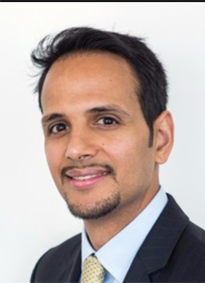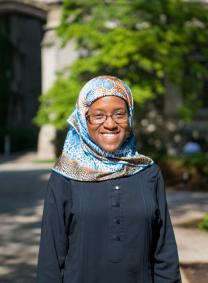Inaugural Alumni-in-Residence program connected current and former students
The program, which included workshops, speaker sessions, and one-on-one networking, looks to grow in coming iterations.
By Sarah Steimer
Little prepares students for their future like experience, and few can offer insight like those who once walked in their shoes — especially if those shoes hit the same UChicago pavement.
The Division of the Social Sciences introduced its Alumni-in-Residence (or AiR) program in Winter 2021, developed to connect SSD students, postdocs, and alumni. The program was designed in particular to provide students with insight into where their UChicago degrees could take them — sectors that include research and higher education, government, private industry, and self-employment.
While networking is crucial for entering the workforce, many students weren’t sure where to begin when reaching out to UChicago alumni, which was one of the reasons the division was prompted to develop the AiR program.
But from the alumni perspective, the division also saw an opportunity to better engage former students — especially those outside of higher education. “We are proud of their accomplishments,” says Chaevia Clendinen, Associate Dean for Student Advancement and Diversity. “We would be honored to have them come back and impart knowledge, skills, or whatever they feel they can give to the university.
To pull together the inaugural cohort of alumni to participate in the program, SSD compiled a list of people to reach out to and gauge their interest in connecting with students. Nine alumni participated in this first cohort, with resumes that include The New York Times, the Brookings Institution, and Kyung Hee University.
Clendinen says alumni were asked to participate in one event — in person or through video conference — during their residency that would impart a skill or wisdom to students. They were also asked to be available to students should they have questions or wanted to network.
One AiR event was titled “Pursuing Careers Outside the Academy,” a workshop for PhD students from David Bholat, who received his PhD in anthropology from UChicago in 2012 and works as a senior manager in advanced analytics at the Bank of England. The talk had three goals: To offer a structured framework for students to reflect on whether to pursue a career outside higher education; to provide insight on how students might find or generate employment opportunities by repurposing their research skills for conducting a job search; and to impart practical tips for translating their academic experience into business language.
“But over and above this pragmatic advice, I wanted students to walk away feeling inspired and confident about navigating non-university settings,” Bholat says. “PhD students endure a number of stressors that can knock their self-confidence. But by virtue of being doctorate students, they are creative and highly skilled entrepreneurs, with expertise and passion for continual learning. I wanted them to know those traits would serve them well, whatever their eventual calling.”
The practice of reaching out to the alumni also served as professional development practice for the students, according to Clendinen. “As you reach out to individuals, you just can't say, ‘Hey, I'd like to talk to you about jobs,” she says. Students were instead prompted to provide information about themselves and what they wanted to discuss with the alumni, which helps prepare the students for future informal interviews and information-gathering.
“Students really appreciated the opportunity to hear what the alumni had to share,” Clendinen says. “I think from an alumni perspective, the ability to re-engage with the university in a way that was meaningful to them was really welcoming.”
Bholat says he offered one-on-one coaching after his workshop to provide more personalized advice tailored to students’ individual circumstances. “Those conversations were deeply moving, meaningful and memorable to me,” he says “I am immensely grateful to the students for opening up to me about their fears and aspirations. When people share their vulnerabilities with you, that's a gift. And the additional reward comes from feeling you've been of service to people who themselves have so much to offer the world as either scholars or otherwise.”
With the next cohort, the division is looking to take into account those alumni who have expressed interest since the program launched, as well as what industries and networks students are looking to tap into. Clendinen says they’re also looking to get departments within the division more engaged to make the connections even deeper.
“I was honored and humbled to be considered to be part of the inaugural alumni-in-residence class,” Bholat says. “It was a no-brainer really. When the University of Chicago asks for your support, you answer the call.”
 THE UNIVERSITY OF CHICAGO
THE UNIVERSITY OF CHICAGO



